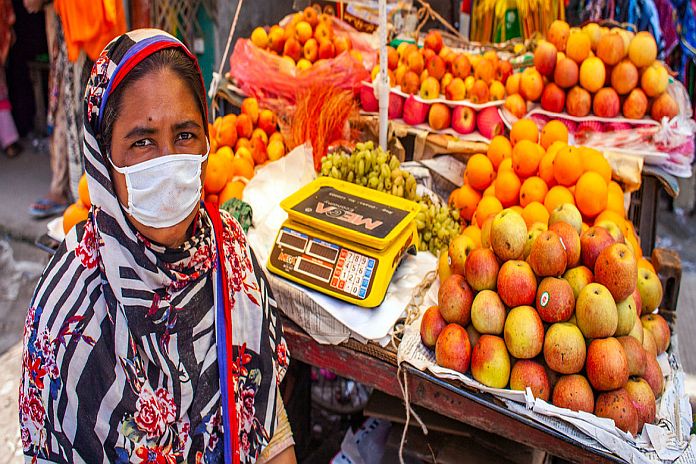NEW YORK, USA – Unless the world acts now, the COVID-19 pandemic and accompanying global recession, will trigger “years of depressed and disrupted economic growth”, the UN chief warned on Wednesday.
During the first in a series of roundtable discussions on responding and recovering better from the global crisis, this one with women economists, he painted a grim picture of acute suffering, saying that extreme poverty and hunger are set to increase drastically. Many healthcare systems are already at breaking point, and a whole generation of children is missing out on education.
“The pandemic threatens not just to put the 2030 Agenda for Sustainable Development on hold, but to reverse progress that has already been made”, Secretary-General António Guterres said.
Building back better
Against the backdrop of his call for an overall rescue package by governments, equivalent to at least ten per cent of the global economy, Guterres said he had convened world leaders and international organizations in a joint initiative to sharpen and accelerate the global response to the impacts of COVID-19. Headed by the prime ministers of Jamaica and Canada, and with more than 50 heads of State and government taking part, they focused on identifying ways to finance the recovery and build back better.
The top politicians stepped forward to lead the joint effort – with UN agencies, financial institutions, private sector creditors and others – to address key challenges, ranging from global liquidity and debt vulnerability to eroding illicit financial flows.
Guterres pointed out that developing countries face vastly increased demands for public spending “exactly at the same time” as tax and export revenues, inward investments and remittances, are plummeting.
“As we craft a comprehensive global response, action on finance must be central”, underscored the UN chief. “If countries lack the financial means to fight the pandemic and invest in recovery, we face a health catastrophe and a painfully slow global recovery”.
Debt crisis
The world is on the cusp of a widespread debt crisis, the top UN official said, noting that many countries face “an impossible choice” between servicing their debt or protecting their most vulnerable communities and fighting the pandemic.
Explaining that “debt defaults can have devastating social consequences”, he made clear that many countries lack financial market access to enable them to service their debt.
“Beyond the fiscal shock, the COVID-19 crisis has impacted all the components of external finance: direct investment, exports and remittances”, he continued, adding that as developed countries themselves deal with the crisis, official development assistance is also under pressure.
For recovery and to realize the SDGs, “durable solutions on debt” must be considered “to create fiscal space for investments”, stressed Guterres.
“Uncertainty and a further retreat to inward-looking policies and protectionism could turn today’s sharp decline into a prolonged period of weak external financing”, the UN chief cautioned.
Moreover, as the pandemic disrupts supply chains and trade, he flagged the danger that some manufacturing will move back to developed countries, further reducing developing countries’ resources, and challenging their integration into the global economy.
“These questions need bold and creative answers” Guterres upheld.
Finding solutions
According to the UN chief, “we need the insights and perspectives of all”, including “prominent and innovative” women economists, to create “inclusive, resilient and gender-equal societies” to address the climate crisis and other global challenges.
“We need concrete, radical and implementable solutions”, spelled out the secretary-general, voicing hope that the series of roundtables will stimulate new ideas and “a totally different debate in relation to the classic ones we have witnessed in the recent past”.
Much-need transformation
In imagining “a new global economy in which finance becomes a means and not an end”, deputy secretary-general Amina Mohammed noted that external finance “needs to change course”.
“We need a partnership with financial markets to change the balance and achieve the SDGs”, she said, adding that investments cannot be only about profit at any cost but must “land on the right side of history”.
The transformation must “break the inequality and environmental degradation enchantment that darkens our future”, she continued, pushing for a new global economy “based on sustainable consumption and production, on sustainable infrastructure that gives access to all to the opportunities of the future”.
“And we need to do it for the next generations”, concluded the deputy UN chief. “Rebirthing the global economy is an opportunity to empower them to confront the current and looming challenges”.





